The Importance of Sleep for Peak Performance
Sleep is an essential aspect of human life, and its importance for optimal health and performance cannot be overstated. Adequate sleep is essential for physical, cognitive, and emotional well-being, and its effects on performance have been studied in various fields, including sports, business, and academics.

A favorite quote of mine by Thomas Dekker says – “ Sleep is the golden chain that ties health and our bodies together.”. The quote beautifully captures the essence of the importance of sleep and how it is intricately connected to our physical and mental well-being. If this golden chain is disrupted our health suffers.
I have experienced firsthand the impact that sleep deprivation can have on our health and productivity. When I don’t get enough sleep, I feel irritable, sluggish, and unable to focus on tasks. It’s almost as if my body and mind are not functioning optimally. Research has shown that even one night of sleep deprivation can cause blood sugar to surge, making a person’s physiology resemble that of diabetics.
One of the most fascinating things about sleep is the way it allows our brains to undergo a thorough cleaning process. During sleep, the glymphatic system pumps cerebrospinal fluid around the brain in time with the pulsing of arteries. This liquid washes away soluble waste products before draining into the lymphatic system which clears out toxins and waste products, which otherwise could lead to buildup of amyloid plaque. This buildup is associated with Alzheimer’s disease and dementia, so getting enough sleep can help delay the onset of these debilitating conditions.
It’s amazing to think about how something as simple as sleep can have such a profound impact on our health and well-being. I’ve come to realize that prioritizing sleep is one of the most important things I can do for my overall health, and I try to make sure I’m getting enough rest every night. After all, a good night’s sleep is truly priceless!
In my younger days falling asleep was never a problem. But, as I approached my mid-fifties, I began to notice that falling asleep wasn’t as easy as it used to be. While I once slept soundly until 9 am, I started experiencing occasional bouts of restlessness in bed. However, I’ve since found ways to ensure a restful night’s sleep.
First and foremost, I try to expose myself to natural light as soon as I wake up in the morning. This helps regulate my body’s internal clock and supports healthy circadian rhythms. I’ve also learned to avoid exercising too close to bedtime, as it can be too stimulating for my body.
To further promote relaxation, I’ve started taking Ashwagandha supplements and sipping on chamomile tea in the evenings. I make sure to avoid screens before bedtime since blue light can interfere with my body’s production of melatonin. Instead, I opt for soft red lighting, which helps calm my mind and promotes a peaceful mood.
In the evenings, I spend time planning for the next day and engaging in reflective journaling. I also take a few minutes to read affirmations, which helps me stay positive and relaxed. By 10:30 pm, I turn off all the lights in my bedroom to create a dark sleeping environment.
By following this sleep routine, I’ve been able to overcome occasional restlessness in bed and enjoy a more restful night’s sleep. Plus, I’ve noticed that I’m more productive and energized the following day. Overall, prioritizing healthy sleep habits is essential for our physical and mental well-being. Hence, in this chapter, we will explore the various aspects of sleep, their functions, and how they affect performance.
The Stages of Sleep
Sleep is a dynamic process that is divided into two main stages: Non-REM (NREM) sleep and REM sleep. NREM sleep is further divided into three stages, with each stage characterized by a different level of brain activity, muscle tone, and eye movement.
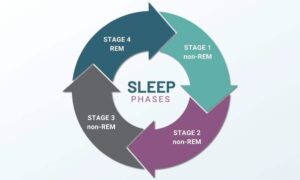
NREM sleep:
Stage 1: This is the stage of light sleep, where the person can be easily awakened. It is characterized by a decrease in muscle tone and slow eye movements.
Stage 2: This stage is marked by a decrease in heart rate, body temperature, and breathing rate, and the brain produces bursts of rapid, rhythmic brain waves called sleep spindles and K-complexes.
Stage 3: This is the stage of deep sleep, also known as slow-wave sleep. It is characterized by the presence of slow, high-amplitude brain waves called delta waves. This is the stage where the body repairs and regenerates itself.
REM Sleep:
REM sleep is the stage of sleep where the brain is most active, and most dreaming occurs. It is characterized by rapid eye movements, increased heart rate and breathing rate, and temporary paralysis of the muscles.
Tracking sleep
We can track our sleep using devices and take remedial measures to improve our sleep. There are several sleep-tracking devices available in the market for biohackers. Here are a few popular ones:
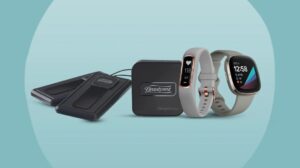
Oura Ring: The Oura Ring is a wearable device that tracks your sleep, activity, and readiness levels. It uses infrared sensors to measure your body temperature, heart rate variability, and respiratory rate and uses these measurements to track your sleep stages and quality. It also provides personalized feedback and guidance to help you optimize your sleep and overall health.
Fitbit: Fitbit is a popular brand of wearable devices that track sleep, activity, and other health metrics. Their sleep-tracking technology uses a combination of movement sensors and heart rate monitoring to track your sleep stages and quality. They also provide personalized sleep insights and guidance to help you improve your sleep habits.
Garmin: Garmin is another brand of wearable devices that track sleep and other health metrics. Their sleep-tracking technology uses a combination of movement sensors, heart rate monitoring, and pulse oximetry to track your sleep stages and quality. They also provide personalized insights and recommendations to help you optimize your sleep and overall health.
SleepScore Max: The SleepScore Max is a non-wearable device that tracks your sleep using advanced sonar technology. It measures your breathing and movement patterns to track your sleep stages and quality and provides personalized recommendations to help you improve your sleep.
Withings Sleep Analyzer: The Withings Sleep Analyzer is a non-wearable device that tracks your sleep using advanced sensors that slip under your mattress. It measures your movement, breathing, and heart rate to track your sleep stages and quality, and provides personalized insights and guidance to help you optimize your sleep.
Overall, there are many sleep-tracking devices available in the market for biohackers, and choosing the right one depends on your personal preferences and needs. It’s important to do your research and choose a device that is accurate, reliable, and provides personalized insights and guidance to help you optimize your sleep and overall health.
Functions of Sleep:
Sleep serves various functions, including:
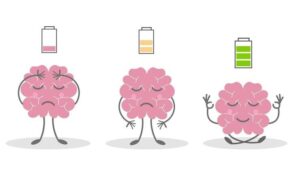
Physical restoration: Sleep is essential for the restoration and repair of the body’s tissues and cells, including muscle tissue, bone, and skin.
Cognitive processing: Sleep plays a crucial role in consolidating memories and learning. During sleep, the brain processes and stores information, which is critical for memory retention.
Emotional regulation: Sleep is essential for emotional regulation and processing. A lack of sleep can lead to emotional instability and an increased risk of mood disorders such as depression and anxiety.
How Sleep Affects Performance
Sleep has a significant impact on performance, both physical and cognitive. Studies have shown that sleep deprivation can impair cognitive functions such as attention, memory, and decision-making. It can also lead to a decline in physical performance, such as reduced reaction time, hand-eye coordination, and endurance.
Impact of sleep on Performance
There are numerous examples of how sleep affects performance in various fields, including sports, business, and academics.
Sports: Professional athletes recognize the importance of sleep for peak performance. LeBron James, one of the greatest basketball players of all time, reportedly sleeps for 12 hours a day during the NBA playoffs to optimize his performance.
Business: Sleep deprivation can lead to poor decision-making, decreased productivity, and an increased risk of accidents. The founder and CEO of Thrive Global, Arianna Huffington, is a strong advocate of sleep and even wrote a book on the topic called “The Sleep Revolution.”
Academics: Students who get adequate sleep perform better academically than those who do not. A study conducted by Brown University found that college students who slept less than six hours a night had lower GPAs than those who slept for seven to eight hours a night.
The Impact of Sleep Deprivation and Sleep Disorders on Performance
Sleep deprivation and sleep disorders negatively impact performance. Here are some common sleep disorders and their symptoms.
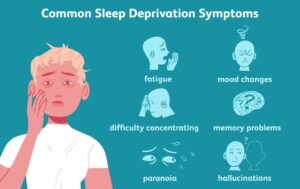
Sleep Deprivation
Sleep deprivation is a condition where a person does not get enough sleep. This can be due to various factors, including work, school, or personal issues. Chronic sleep deprivation can have significant impacts on performance and health.
Effects of Sleep Deprivation on Performance
Sleep deprivation can cause impairments in cognitive function, including attention, memory, and decision-making. It can also lead to a decline in physical performance, including reduced reaction time, hand-eye coordination, and endurance.
Sleep deprivation can also affect emotional regulation and lead to irritability, mood swings, and an increased risk of depression and anxiety.
Effects of Sleep Deprivation on Health
Sleep deprivation can have negative effects on overall health, including an increased risk of obesity, diabetes, heart disease, and stroke. It can also weaken the immune system and increase the risk of infections.
Sleep Disorders
Sleep disorders are conditions that affect the quality or quantity of sleep. There are various sleep disorders, and their symptoms can vary depending on the disorder. Some common sleep disorders include:
Insomnia
Insomnia is a sleep disorder characterized by difficulty falling or staying asleep. Insomnia can be caused by various factors, including stress, anxiety, depression, or medications.
Sleep Apnea
Sleep apnea is a sleep disorder characterized by interrupted breathing during sleep. It is caused by a blockage of the airway, which can result in loud snoring, gasping for air, and daytime sleepiness.
Restless Leg Syndrome
Restless leg syndrome is a sleep disorder characterized by an uncontrollable urge to move the legs during sleep. It can cause sleep disruption and daytime sleepiness.
Impact of Sleep Disorders on Performance
Sleep disorders can have a significant impact on performance in various fields.
Sports: Sleep apnea can affect athletic performance by causing daytime sleepiness, fatigue, and decreased endurance. Former NFL player Reggie White suffered from sleep apnea, which contributed to his untimely death at the age of 43.
Business: Insomnia can affect decision-making, productivity, and creativity. Media mogul Oprah Winfrey has spoken publicly about her struggles with insomnia and how it has affected her work.
Academics: Restless leg syndrome can cause sleep disruption, leading to daytime sleepiness and a decline in academic performance. Actress and singer Kristin Chenoweth has spoken about her struggles with restless leg syndrome and how it has affected her ability to learn lines and perform on stage.
Sleep-Enhancing Strategies for Peak Performance
There are various strategies for enhancing sleep and optimizing performance.
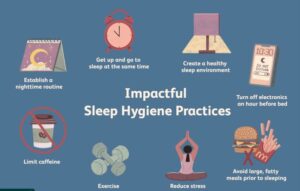
Sleep Hygiene
Sleep hygiene refers to the practices and habits that promote good sleep. Some sleep hygiene practices include:
- Establishing a regular sleep schedule
- Creating a relaxing bedtime routine
- Avoiding caffeine, alcohol, and nicotine before bedtime
- Keeping the bedroom dark, quiet, and cool
- Avoiding screens before bedtime
Relaxation Techniques
Relaxation techniques, such as meditation, deep breathing, and progressive muscle relaxation, can help reduce stress and promote relaxation, leading to better sleep.
Sleep Aids
Sleep aids, such as prescription medications or over-the-counter supplements, can be effective in promoting sleep. However, it is essential to use these aids under the guidance of a healthcare professional.
Enhancing / biohacking sleep
a) Examples of Sleep-Enhancing Strategies
Various individuals have adopted sleep-enhancing strategies to optimize their performance.
Sports: Tennis player Serena Williams has spoken about the importance of sleep hygiene for her athletic performance, and she reportedly sleeps for at least 10 hours a night.
Business: Jeff Bezos, founder, and CEO of Amazon, has emphasized the importance of good sleep for decision-making and productivity. He reportedly gets eight hours of sleep a night and prioritizes his sleep schedule.
Neuroscientist and sleep expert Matthew Walker has advocated for sleep hygiene and relaxation techniques to improve academic performance. He recommends establishing a regular sleep schedule and creating a relaxing bedtime routine to promote better sleep.
b) Some important athletes who bio-hacked sleep for peak performance
LeBron James
LeBron James, a professional basketball player, reportedly spends around $1.5 million per year on his physical health and wellness, which includes prioritizing his sleep. He aims to get at least 12 hours of sleep a night and reportedly uses a specialized bed that tracks his sleep patterns and adjusts to optimize his sleep.
Roger Federer
Tennis player Roger Federer is known for his intense training schedule, but he also prioritizes his sleep to ensure he is in top form for his matches. He reportedly gets at least 10 hours of sleep a night, and when he travels for tournaments, he brings his mattress and pillows to ensure he gets a good night’s rest.
Tom Brady
American football player Tom Brady is known for his strict health and wellness routine, which includes prioritizing his sleep. He reportedly goes to bed by 8:30 pm and wakes up at 5:30 am to get at least 9 hours of sleep each night. He also uses blackout curtains and earplugs to create a dark and quiet sleeping environment.
Usain Bolt
Sprinter Usain Bolt, who holds multiple world records, reportedly prioritizes his sleep by getting at least 8 hours of sleep a night. He also uses relaxation techniques, such as meditation, to help him fall asleep quickly and improve the quality of his sleep.
Venus Williams
Professional tennis player, Venus Williams has spoken publicly about her struggles with Sjogren’s syndrome, an autoimmune disorder that can cause fatigue and joint pain. She has credited good sleep hygiene and prioritizing her sleep as crucial components of her health and wellness routine.
These athletes are just a few examples of individuals who have recognized the importance of sleep in optimizing their performance and have used various strategies to biohack their sleep for peak performance.
Biohacking sleep for better performance
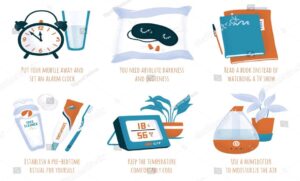
There are various ways to “hack” sleep for better performance. Here are some strategies:
Establish a sleep routine: Set a regular sleep schedule and try to stick to it as much as possible, even on weekends. This helps regulate your body’s internal clock and promotes better sleep quality.
Optimize your sleep environment: Create a sleep-conducive environment by keeping your bedroom cool, dark, and quiet. Consider using earplugs, blackout curtains, or a white noise machine if necessary.
Avoid blue light exposure: Blue light from electronic devices can disrupt your sleep by suppressing melatonin production. Try to limit your exposure to electronic devices for at least an hour before bedtime, or use blue light-blocking glasses.
Manage stress: Stress can make it difficult to fall asleep and stay asleep. Incorporate relaxation techniques such as meditation, deep breathing, or progressive muscle relaxation to help manage stress levels.
Exercise regularly: Regular exercise can improve sleep quality and help regulate your body’s internal clock. However, avoid exercising too close to bedtime as it can stimulate your body and make it harder to fall asleep.
Consider sleep aids: If you have trouble falling asleep or staying asleep, consider using sleep aids such as melatonin supplements, herbal remedies, or prescription medications. However, it’s important to speak with a healthcare provider before using any sleep aids.
By implementing these strategies, individuals can optimize their sleep quality and quantity, leading to better performance in various aspects of their lives.
Best sleep aids for sleeplessness
There are various sleep aids available for sleeplessness, including:
Melatonin:
Melatonin is a hormone that regulates the sleep-wake cycle. It can be purchased over the counter as a dietary supplement and can be helpful for those who have difficulty falling asleep.
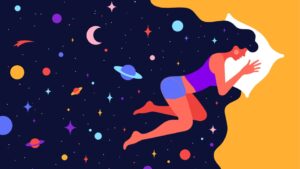
Valerian root: Valerian root is a herbal supplement that is believed to have sedative effects and can help improve sleep quality.
Chamomile: Chamomile is a plant that is commonly used as a tea and is known for its relaxing properties. It can help promote relaxation and improve sleep quality.
Lavender: Lavender is an essential oil that is believed to have calming and sedative effects. It can be used topically or aromatically to promote relaxation and improve sleep quality.
Prescription medications: In some cases, prescription medications may be necessary for treating sleep disorders such as insomnia. These medications should only be used under the guidance of a healthcare provider.
ZMA for sleep
ZMA (Zinc Magnesium Aspartate) is a dietary supplement that is marketed as a sleep aid and muscle recovery enhancer. It contains zinc, magnesium, and vitamin B6, which are all essential nutrients that play a role in various bodily functions.
While some studies have suggested that ZMA may improve sleep quality, the evidence is mixed, and more research is needed to fully understand its effects. Some studies have found that ZMA supplementation improved sleep quality and duration in athletes, while others have found no significant effects on sleep.
It’s important to note that ZMA is not a cure for sleep disorders, and individuals who are experiencing sleeplessness should speak with a healthcare provider to address the underlying causes of their sleep issues.
It’s important to note that while these sleep aids can be helpful, they should not be relied upon as a long-term solution for sleeplessness. It’s essential to address the underlying causes of sleeplessness and adopt healthy sleep habits to promote long-term sleep health. If sleeplessness persists, it’s important to speak with a healthcare provider to rule out any underlying medical conditions.
Use of Barbiturates, sedatives, and hallucinogens for sleep
Barbiturates and sedatives are central nervous system depressants that are commonly used to treat sleep disorders such as insomnia. While these medications can help individuals fall asleep more easily, they can also disrupt the normal sleep cycle and reduce the amount of deep sleep obtained. Overuse or dependence on these medications can also lead to rebound insomnia and other negative side effects.
Hallucinogens such as LSD and psilocybin are not typically used for sleep enhancement and can have unpredictable effects on sleep. While some individuals have reported vivid and memorable dreams after using these substances, others have reported disruptions in sleep and increased wakefulness.
Overall, it’s important to approach the use of any substance, whether natural or pharmaceutical, with caution when it comes to sleep. The best approach to optimizing sleep quality and quantity is to focus on healthy sleep habits, such as maintaining a regular sleep schedule, creating a sleep-conducive environment, and managing stress levels. If sleep problems persist, it’s important to speak with a healthcare provider to rule out any underlying medical conditions and determine the most appropriate treatment plan.
SLEEP EPIDEMIC
The term “sleep epidemic” refers to the widespread problem of sleep deprivation that is affecting a large percentage of the global population. Studies suggest that the average amount of sleep that people are getting these days is around 6-7 hours per night, which is significantly less than the recommended 7-9 hours per night for adults.
There are several reasons why there may be a sleep epidemic. One major factor is the increasing demands and distractions of modern life, such as long work hours, excessive screen time, and high levels of stress. These factors can interfere with the natural sleep-wake cycle and make it more difficult for individuals to obtain sufficient amounts of sleep.
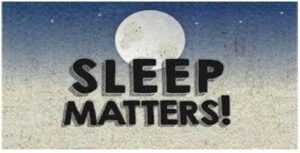
Additionally, the prevalence of sleep disorders such as insomnia and sleep apnea has increased in recent years, which can also contribute to the sleep epidemic. These disorders can disrupt the normal sleep cycle and make it more difficult for individuals to obtain restful and restorative sleep.
Another contributing factor is the cultural value placed on productivity and work, which can lead individuals to prioritize work over sleep and neglect their sleep needs. This can lead to a cycle of sleep deprivation and decreased productivity, as well as negative health consequences over the long term.
Overall, the sleep epidemic is a complex issue that requires a multi-faceted approach to address. This may include education and awareness campaigns, policy changes to support work-life balance and healthy sleep habits, and increased access to resources and treatments for sleep disorders.
Sleep is a critical component of overall health and performance. Sleep should be a priority in our lives. We often sacrifice sleep to meet deadlines or complete tasks, but this can have negative consequences for our health and performance. It’s important to recognize that sleep is not a luxury, but a necessity for optimal health and performance. Creating a consistent sleep routine is key to ensuring that we get enough sleep and that our bodies can adjust to a regular sleep schedule. This includes going to bed and waking up at the same time every day, even on weekends.
Our sleep environment plays a crucial role in the quality of our sleep. This includes optimizing factors such as temperature, noise, and lighting to ensure that your bedroom is conducive to sleep. It’s important to get enough sleep to ensure that our bodies have enough time to go through all the necessary sleep stages. While individual sleep needs vary, most adults require between 7-9 hours of sleep per night. Research has shown that getting enough sleep can improve cognitive function, memory, and decision-making abilities. It can also improve physical performance and help with muscle recovery after exercise. During times of stress or increased workload, it’s important to prioritize sleep even more. This can help reduce stress levels and improve our ability to cope with difficult situations.
Conclusion
In conclusion, sleep plays a critical role in optimizing performance. The various stages of sleep each have unique functions that contribute to overall health and well-being. Sleep deprivation and sleep disorders can have significant impacts on performance and health, and it is essential to adopt sleep-enhancing strategies to promote better sleep. By prioritizing sleep hygiene, relaxation techniques, and sleep aids when necessary, individuals can optimize their performance and achieve their goals.
 Dr K. Jayanth Murali is a retired IPS officer and a Life Coach. He is the author of four books, including the best-selling 42 Mondays. He is passionate about painting, farming, and long-distance running. He has run several marathons and has two entries in the Asian book of Records in full and half marathon categories. He lives with his family in Chennai, India. When he is not running, he is either writing or chilling with a book.
Dr K. Jayanth Murali is a retired IPS officer and a Life Coach. He is the author of four books, including the best-selling 42 Mondays. He is passionate about painting, farming, and long-distance running. He has run several marathons and has two entries in the Asian book of Records in full and half marathon categories. He lives with his family in Chennai, India. When he is not running, he is either writing or chilling with a book.
